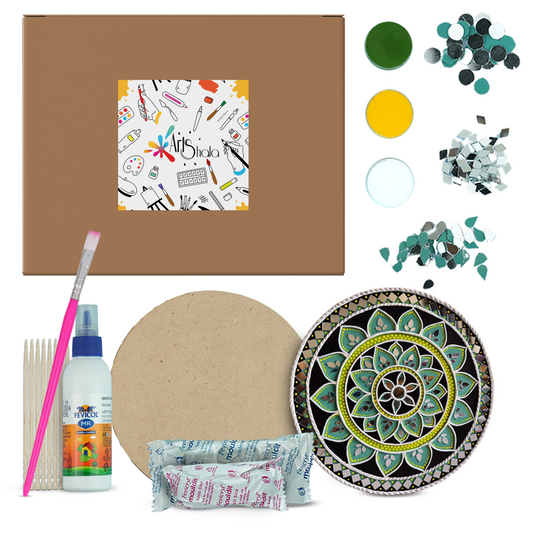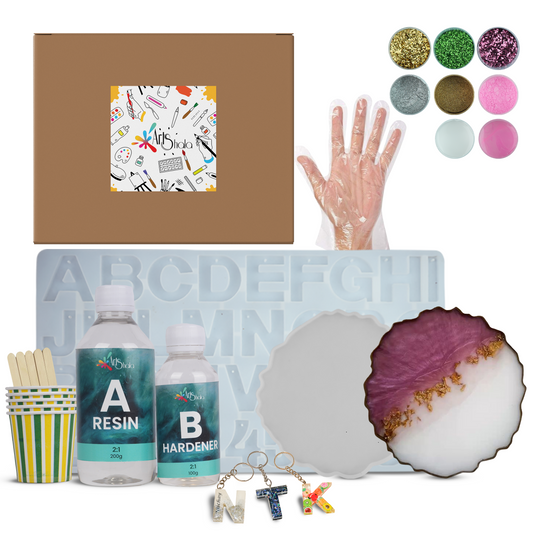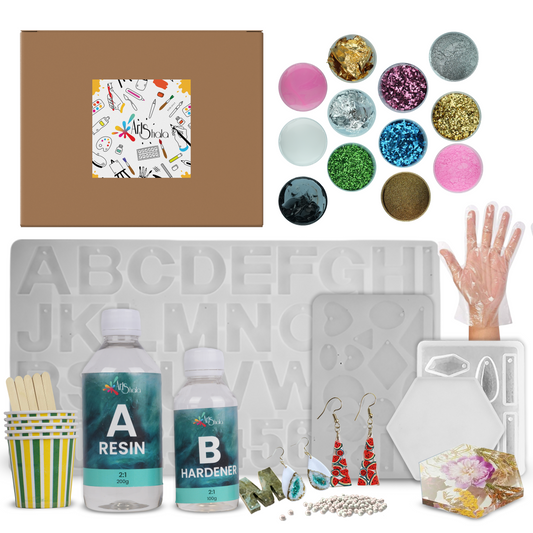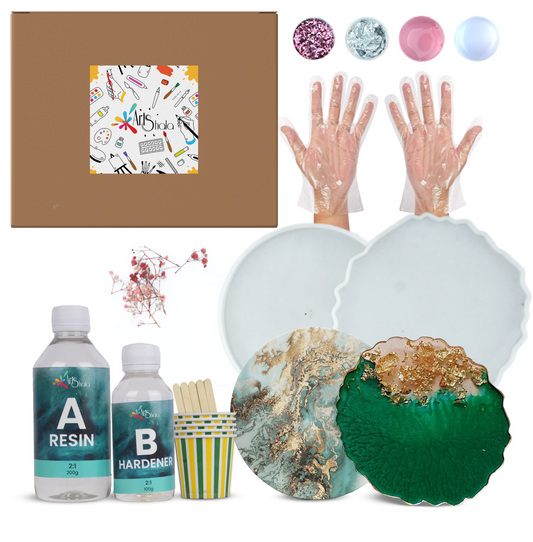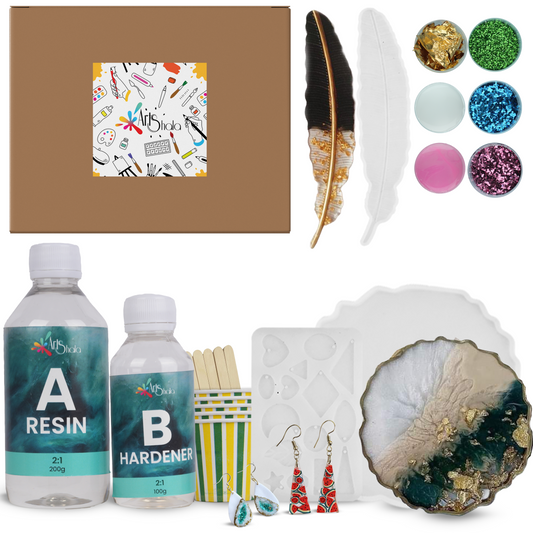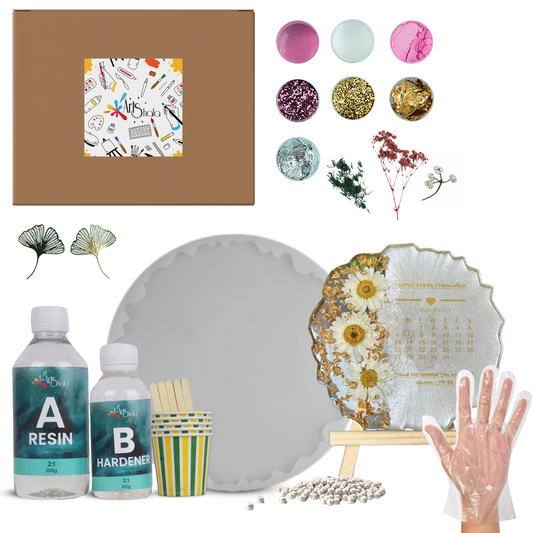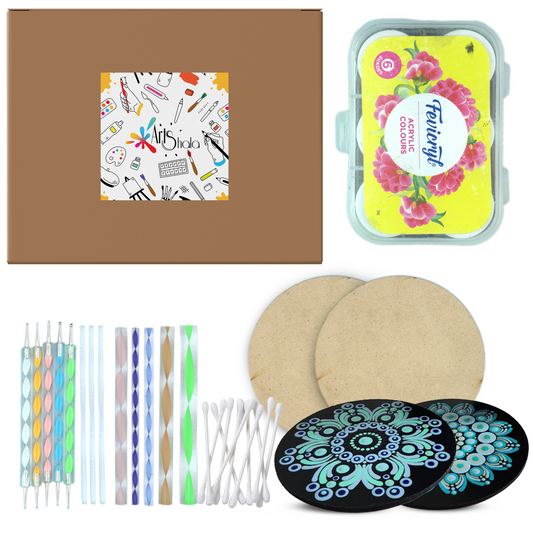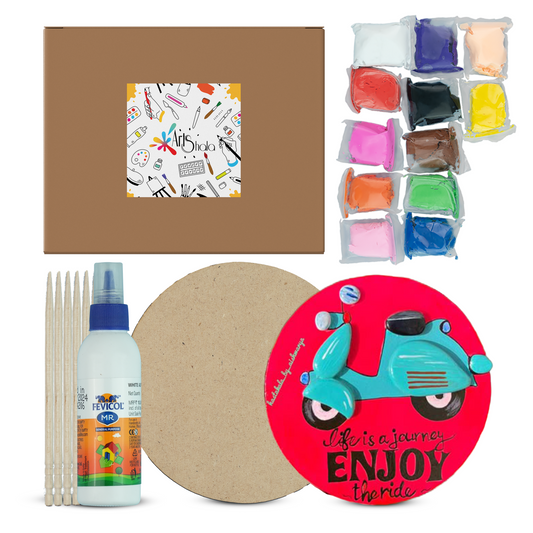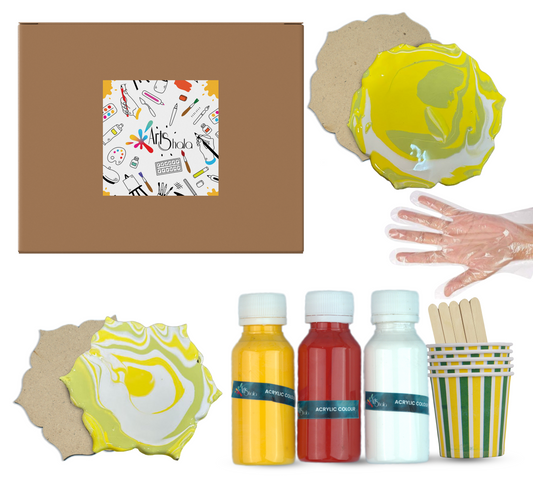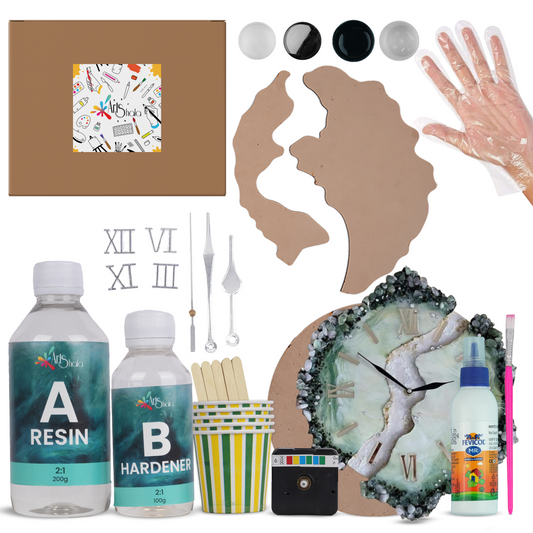At What Temperature Does Craft Resin Cure Optimally?
Craft resin is a versatile and popular material used in various art and DIY projects. When mixed with a hardener, it undergoes a chemical reaction that leads to curing, transforming it from a liquid into a solid, durable form. This curing process is essential for creating stunning resin art pieces, jewellery, and decorative items, and for the curing process, maintaining the ideal temperature within a specific range is crucial for successful craft resin projects.
If you're eager to know more about resin art and understand more about resin curing time, joining a resin art workshop can provide invaluable insights and hands-on experience. In this blog, we will get into the topic of resin curing temperatures and provide valuable insights to help you produce flawless resin creations every time. So, let's get started and discover the ideal temperature for curing craft resin.
The Optimal Temperature Range for Curing Craft Resin
Craft resin requires specific conditions to cure optimally and achieve the desired results. Maintaining the ideal temperature range during the curing process is crucial for ensuring a successful outcome. Here, we will explore the recommended temperature range for curing craft resin and discuss the effects of temperature variations on the viscosity behaviour of the resin.
Recommended Temperature Range for Curing Craft Resin
Craft resin cures optimally at a temperature between 21-24°C (70-75°F). This temperature range is considered ideal because it allows for a balanced chemical reaction between the epoxy resin and hardener, resulting in a strong and durable cured product. It is important to note that different types of resins may have slightly different temperature requirements, so always refer to the manufacturer's instructions for specific guidance.
Effects of Temperature Variations on Craft Resin Viscosity
Temperature variations can significantly impact the viscosity behaviour of craft resin during the curing process:
- Low Temperatures: When resin is exposed to lower temperatures, it becomes more dense or thick. This increased viscosity slows down the curing rate, making it challenging for air bubbles to escape and affecting the overall quality of the cured piece.
- High Temperatures: On the other hand, higher temperatures can reduce viscosity, leading to accelerated curing and potential issues such as excessive heat generation (exothermic reaction).
Tips for Maintaining the Ideal Temperature
To ensure optimal curing conditions, it is essential to monitor and control the temperature throughout the entire resin work process. Here are some tips to help maintain the ideal temperature:
- Move Indoors: If you're working somewhere chilly, try to find a place indoors where you can do your craft. Indoor spaces usually have better insulation and let you control the temperature more easily.
- Use Heaters: Set up heaters or use other heat sources to warm up your workspace and keep it at the right temperature for craft resin to cure properly.
- Pre-warm Materials: Before you start your project, make sure to warm up the craft resin itself, as well as the moulds, measuring jugs, and mixing jugs. This helps ensure that everything is at a temperature that's good for mixing and hardening.
Effects of Low Temperatures on Craft Resin Curing
Craft resin can be affected by changes in temperature, especially when it gets cold. Low temperatures can slow down the process of craft resin hardening because it becomes thicker. Here are some important things to know:
Increased Viscosity
At lower temperatures, craft resin becomes thicker and more dense. This makes it harder for the resin and hardener to mix properly, which can result in incomplete hardening. The chemical reaction between the resin and hardener needs them to move and flow easily, but the cold makes that difficult.
Extended Curing Time
When the resin gets thicker, it takes longer for the chemical reaction to happen. This means that it will also take more time for the craft resin to harden when you're working in a cold environment. Remember that if it gets too cold, the resin might stay sticky even after the recommended hardening time.
Potential Quality Issues
Aside from taking longer to harden, low temperatures can also affect how the finished craft resin looks and feels. The increased thickness can create air bubbles or make the surface uneven. This is a problem, especially if you want your projects to have a smooth and perfect finish.
Effects of High Temperatures on Craft Resin Curing
At high temperatures, craft resin curing can pose certain risks and challenges. One of the main concerns is the potential for accelerated curing, leading to issues such as excessive heat generation, known as an exothermic reaction. This phenomenon occurs when the chemical reaction between the resin and hardener produces more heat than can result in a rapid increase in temperature within the resin mixture. Excessive heat generated during the curing process can lead to several undesirable outcomes, including:
- Cracking: High temperatures can cause the resin to cure too quickly, leading to internal stresses and potential cracking in the finished piece.
- Yellowing: Accelerated curing due to high temperatures may result in yellowing or discolouration of the resin, affecting the overall aesthetic appeal of the artwork.
- Weakness: Rapid curing at elevated temperatures can impact the structural integrity of the cured resin, leading to increased weakness and reduced durability.
Conclusion
To achieve successful curing in craft resin projects, temperature control is of utmost importance. The chemical reaction between epoxy resin and hardener is highly sensitive to temperature, which directly affects the curing process. Maintaining the ideal temperature range between 21-24°C (70-75°F) ensures optimal cure and helps in achieving desired results.
As a resin artist, it is worth experimenting with different temperatures within this range to observe the effects on curing time and quality. By understanding how temperature influences the resin's behaviour during the curing process, you can fine-tune your techniques and create unique resin art pieces.
If you're interested in learning more about resin art, temperature control and other aspects of working with epoxy resin, Contact Us on Arts Shala today. Our workshops provide comprehensive guidance and hands-on experience to help you master the art of resin.



